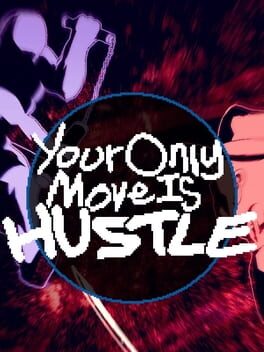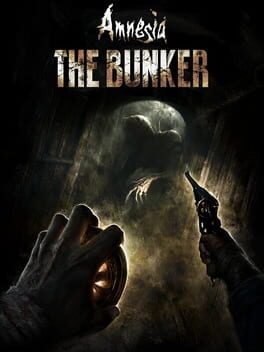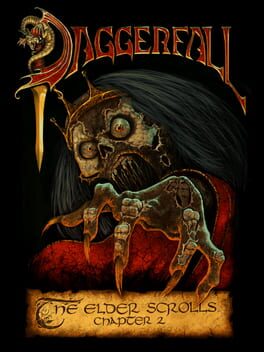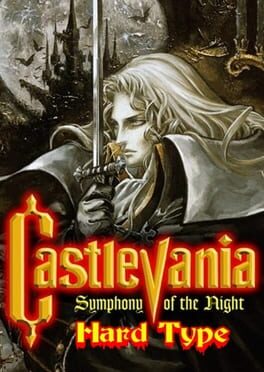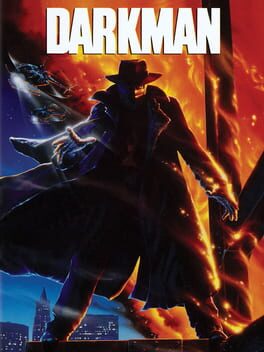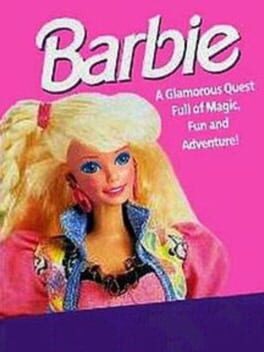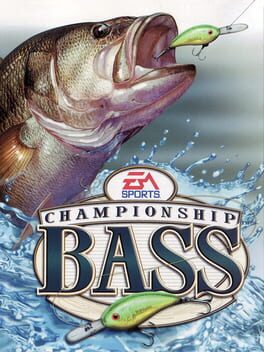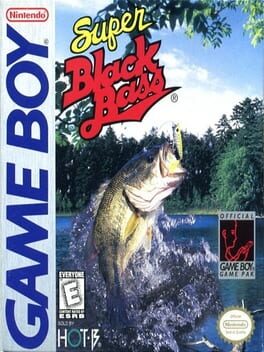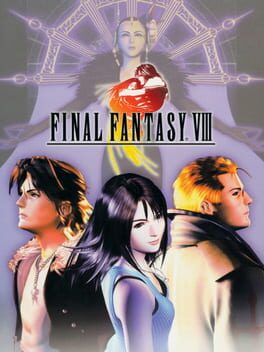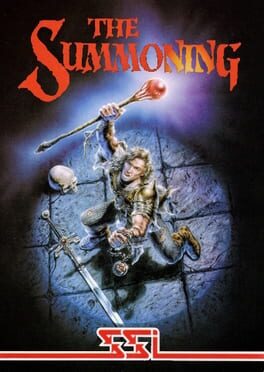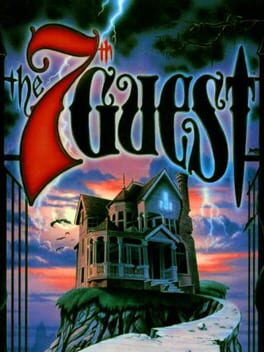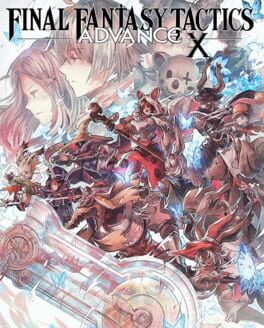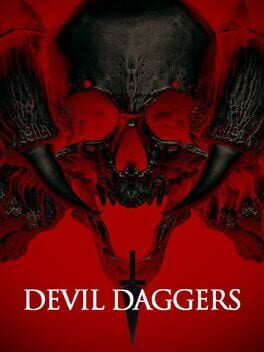diddy
My wife made me play this, she laughs that I'm much like Harry Dubois and she's Kim Kitsuragi. I take a deep dive into myself and realize that we're not all that far from the broken down alcoholic we control, and his choices seem all too relatable to us, no matter how functional we are at the time. Harry's pretty functional too, he's well, wired, often too much, needs to escape the cruel reality that surrounds him. Luckily my wife's still around, let's not reach that point.
This hits the spot in so many ways. I've always wished for a fighting game without the practical necessity of the real-time combat, now couple it with your Newgrounds' childhood stick fighting nostalgia. This game becomes unique by taking the more jargonic mechanics of fighting games, generally understood from within the fighting game community and applying them to a strategy game with its own set of rules. As such it might be hard to understand to some users, the learning curve is steep and it becomes quite a niché game for the uninitiated. What is certain is that Yomi Hustle is one-of-a-kind within its genre, and an industry that struggles to come across new innovative spins on established game design forms.
2023
Yes, this hits the spot, this is definitely better than any Amnesia game since Justine.
This is the one of the best franchise comeback in history, from the utter mediocrity that was Rebirth. Unlike other Amnesia game, this one is much more open and the monster is way more aggressive, I feel they really learned some of the better tricks from Alien Isolation and applied it to this new entry, while maintaining the Amnesia formula.
This entry experiments on noise-based game mechanics, the monster will react to noise, with each of your actions, including your flashlight will generate noise for vision. Props to Frictional for the return of the revolver, which doesn't detract from the fear factor as much as it did in Penumbra. Many of the earlier game mechanics have been cut down which makes for a simpler game without it being dumbed down.
My only complain is that there are some unavoidable deaths from the randomness of the monster's presence, especially on higher difficulty, as the monster often roams the bunker randomly waiting for you to make the slightest noise. Sometimes the randomness of the monster means there is simply no possible escape and opening a flashlight means alerting the monster, hard to find yourself or the monster in complete darkness.
Don't be dissuaded by reaction streamer to try the excellent Amnesia collection, as they some of the most hair-rising horror games to date.
This is the one of the best franchise comeback in history, from the utter mediocrity that was Rebirth. Unlike other Amnesia game, this one is much more open and the monster is way more aggressive, I feel they really learned some of the better tricks from Alien Isolation and applied it to this new entry, while maintaining the Amnesia formula.
This entry experiments on noise-based game mechanics, the monster will react to noise, with each of your actions, including your flashlight will generate noise for vision. Props to Frictional for the return of the revolver, which doesn't detract from the fear factor as much as it did in Penumbra. Many of the earlier game mechanics have been cut down which makes for a simpler game without it being dumbed down.
My only complain is that there are some unavoidable deaths from the randomness of the monster's presence, especially on higher difficulty, as the monster often roams the bunker randomly waiting for you to make the slightest noise. Sometimes the randomness of the monster means there is simply no possible escape and opening a flashlight means alerting the monster, hard to find yourself or the monster in complete darkness.
Don't be dissuaded by reaction streamer to try the excellent Amnesia collection, as they some of the most hair-rising horror games to date.
Played Daggerfall only recently, this RPG is definitely greater-than-life, with the obvious downside of being a little randomized at times. There's no doubt that the game is fully-fledged, it feels complete and can be played for hours, the quantity of content is perpetual. There is however still a lack of creative direction resulting from the scale of the game. Daggerfall is an early sandbox game, a trademark of Bethesda's RPG, with all of its flaws and fruitions.
Most people associate Symphony of the Night's biggest flaws to its lack of difficulty and game-breaking weapons. Others simply dislike the added action RPG elements, such as the emphasis on levelling and grinding - or gearing.
Castlevania: Symphony of the Night - Hard Type solves most of these problems by returning the formula to something more akin to the classic series. It is more challenging, enemies are much tougher, weapons are redesigned and game-breaking items were entirely removed and replaced.
A "NoXP" patch can be applied for extra challenges, and to do away with the more bothersome RPG elements, which I found scales the difficulty much better and prevents overleveling for certain areas, ensuring that the game gets progressively more challenging as the player improves.
While the developers of this hack made the bold choice to make enemies up to four times as strong as the original, the main flaw of this game's difficulty remains in its laughably predictable AI. Understandably, there's only so much you can do to improve a 25 years old game without any of its source code in the open.
These slight changes makes Symphony of the Night - Hard Type the much needed New Game + that the game desperately needed and failed to provide, and an overall better alternative to the originals to any newcomers coming from the classics.
Castlevania: Symphony of the Night - Hard Type solves most of these problems by returning the formula to something more akin to the classic series. It is more challenging, enemies are much tougher, weapons are redesigned and game-breaking items were entirely removed and replaced.
A "NoXP" patch can be applied for extra challenges, and to do away with the more bothersome RPG elements, which I found scales the difficulty much better and prevents overleveling for certain areas, ensuring that the game gets progressively more challenging as the player improves.
While the developers of this hack made the bold choice to make enemies up to four times as strong as the original, the main flaw of this game's difficulty remains in its laughably predictable AI. Understandably, there's only so much you can do to improve a 25 years old game without any of its source code in the open.
These slight changes makes Symphony of the Night - Hard Type the much needed New Game + that the game desperately needed and failed to provide, and an overall better alternative to the originals to any newcomers coming from the classics.
1991
Darkman is one of my top 10 movies of all time. Sam Raimi's inspiration from Universal Monsters to create a monstrous super-hero invented for screen makes it one of the most unique movie ever screened. This movie is a perfect mix of classic horror and RoboCop-era hero action and if you haven't seen it, I seriously recommend that you do.
It's a shame that I can't say the same about the game adaptation, Ocean Software has always been a hit and miss developer when it came to adapting original content to video games, and this is by far no "hit" by any means.
Not only does the game has almost nothing to do with the movie, the iconic stealth aspect of Darkman's shape-shifting is entirely put aside and while the player impersonates Durant and his other cronies at the start of each levels (each with their own abilities), it's mostly cosmetics. The game sometimes has a rail shooting section not foreign to other Ocean titles, which offers a welcome break from the tortuous platforming sections. The controls are perhaps the worst part of the game, the player is expected to make pixel-perfect jump at multiple points in the game and the hits register very poorly with no feedback from the game.
The overall presentation of the game is faceless, sprites are quite large for a NES title, but use one of the worst over-saturated palette seen in a NES game and the soundtrack is lazy and generic despite its signature Ocean Software instrumentation.
There is little that can be redeemed about this game, it's playable from start to finish but every sections of the game are mediocre at best, I wouldn't recommend this game to my worst enemy, it's just that painful to play.
It's a shame that I can't say the same about the game adaptation, Ocean Software has always been a hit and miss developer when it came to adapting original content to video games, and this is by far no "hit" by any means.
Not only does the game has almost nothing to do with the movie, the iconic stealth aspect of Darkman's shape-shifting is entirely put aside and while the player impersonates Durant and his other cronies at the start of each levels (each with their own abilities), it's mostly cosmetics. The game sometimes has a rail shooting section not foreign to other Ocean titles, which offers a welcome break from the tortuous platforming sections. The controls are perhaps the worst part of the game, the player is expected to make pixel-perfect jump at multiple points in the game and the hits register very poorly with no feedback from the game.
The overall presentation of the game is faceless, sprites are quite large for a NES title, but use one of the worst over-saturated palette seen in a NES game and the soundtrack is lazy and generic despite its signature Ocean Software instrumentation.
There is little that can be redeemed about this game, it's playable from start to finish but every sections of the game are mediocre at best, I wouldn't recommend this game to my worst enemy, it's just that painful to play.
1991
This was one of the first game I've ever played on Nesticle back in the 90s and well it was really underwhelming.
People wonder why girls don't play video games while the industry pops these shovelware by the thousands, alienating half of the industry. Luckily it seems like that exploitative part of the industry migrated to mobile game for good. Good riddance!
It does have a redeemable soundtrack, kudos to the composer Mark Van Hecke who unfortunately never worked on a good game in his lifetime. Hi Tech Expressions is one of those many video games companies that you don't recall simply because they have never produced anything but uninspired, sleazy cash-grabs targeting young children, which eventually led to their demise, woe is me.
There's an idea of a game, but the developers failed to understand that girls don't find volleyballs, sundaes and kites especially captivating enemies. It could have even been a dress-up game or even an action game considering how She-Ra was a pretty big thing among young girls of the mid-80s. But Barbie does none of the above, it's a mediocre adventure platformer with little substance, reference or meaning. It really shows that the developers wanted a quick cash grab and were scared of experimenting with more "risqué" ideas, as well as an all-male team clueless about the full palette of a young girl's interests.
People wonder why girls don't play video games while the industry pops these shovelware by the thousands, alienating half of the industry. Luckily it seems like that exploitative part of the industry migrated to mobile game for good. Good riddance!
It does have a redeemable soundtrack, kudos to the composer Mark Van Hecke who unfortunately never worked on a good game in his lifetime. Hi Tech Expressions is one of those many video games companies that you don't recall simply because they have never produced anything but uninspired, sleazy cash-grabs targeting young children, which eventually led to their demise, woe is me.
There's an idea of a game, but the developers failed to understand that girls don't find volleyballs, sundaes and kites especially captivating enemies. It could have even been a dress-up game or even an action game considering how She-Ra was a pretty big thing among young girls of the mid-80s. But Barbie does none of the above, it's a mediocre adventure platformer with little substance, reference or meaning. It really shows that the developers wanted a quick cash grab and were scared of experimenting with more "risqué" ideas, as well as an all-male team clueless about the full palette of a young girl's interests.
2000
Probably one of the best fishing games I've played on any system so far! Three years after the release of "Sega Bass Fishing", Championship Bass attempts to translate the popular arcade experience to the home consoles with relative success and a few twists of their own.
Instead of being a typical sandbox fishing simulator, the game is spread across multiple challenge run levels, as well as its four diverse game modes: Bass Challenge, Fishing Trip, Tournament, and Career. Championship Bass' luxury of a level selection screen allows the player to dive right into the action without the need for trips back and forth to a fishing outpost. Before each levels, you will be asked to choose between a variety of lure, worms, rods and fishing lines based on a set budget. Championship Bass biggest flaw is its lack of a rumble feature, we just couldn't get it to work, there seems to be no option and also no option for any sort of force feedback with fishing rods on both the PC or PS1 version of the game.
The game uses a split-screen camera showing both the player character travelling across the environment and the underwater lake. The player is given information about both of his surrounding exclusively through these simultaneous camera, making the game much more dynamic than its counterpart. However, the split screen makes it hard for the game's camera to display all of the action and the fishes often lose themselves in the crop of the camera's angle. Championship Bass is a late Playstation game, and by then, other fishing games on the console such as "Fisherman's Bait" or "Action Bass" arguably had far better graphics, but each of them still sporting much more of an infuriating camera. Championship Bass' split-screen and camera settings allow its perspective to be more immersive and to solely stand out from over other fishing games.
Overall, Championship Bass is a satisfying and balanced fishing game focused on arcade-style gameplay, it's a simple action packed game based on completing tasks under a specific time limits without the bloating of a sandbox fishing game.
Instead of being a typical sandbox fishing simulator, the game is spread across multiple challenge run levels, as well as its four diverse game modes: Bass Challenge, Fishing Trip, Tournament, and Career. Championship Bass' luxury of a level selection screen allows the player to dive right into the action without the need for trips back and forth to a fishing outpost. Before each levels, you will be asked to choose between a variety of lure, worms, rods and fishing lines based on a set budget. Championship Bass biggest flaw is its lack of a rumble feature, we just couldn't get it to work, there seems to be no option and also no option for any sort of force feedback with fishing rods on both the PC or PS1 version of the game.
The game uses a split-screen camera showing both the player character travelling across the environment and the underwater lake. The player is given information about both of his surrounding exclusively through these simultaneous camera, making the game much more dynamic than its counterpart. However, the split screen makes it hard for the game's camera to display all of the action and the fishes often lose themselves in the crop of the camera's angle. Championship Bass is a late Playstation game, and by then, other fishing games on the console such as "Fisherman's Bait" or "Action Bass" arguably had far better graphics, but each of them still sporting much more of an infuriating camera. Championship Bass' split-screen and camera settings allow its perspective to be more immersive and to solely stand out from over other fishing games.
Overall, Championship Bass is a satisfying and balanced fishing game focused on arcade-style gameplay, it's a simple action packed game based on completing tasks under a specific time limits without the bloating of a sandbox fishing game.
1998
While it's not the worst fishing game on the SNES (far, far from it), it's definitely barebone. You could argue that the simplicity of it makes it more playable, yet despite the evident lack of gameplay, the game still requires a lot of manual reading. These games were always a cash grab, I'm not going to convince you to play a mediocre fishing game on the Super Nintendo, but there are a few quality fishing games starting from the Playstation (see: EA's Championship Bass)
This game attempts to look feature-heavy by adding a lot of shop items that don't really add anything to the game. Its gameplay resolves around checking your map and buying the few items you need to catch a specific fish and if you use the wrong bait, well you're gonna have a bad time! It's not really fun and the controls being unintuitive just makes this game extra painful for the little gameplay there is. At least the soundtrack is redeemable in all three games and quite cozy.
There's a reason this review is unusually short, there's just nothing there. The sequel is named "Bassin's Black Bass with Hank Parker" which is arguably better than this one, but once you've played one of these games, they're all the same. So if you really want to play a fishing game on the SNES, play "Bassin's Black Bass with Hank Parker" or "Super Black Bass 2" and avoid the third game altogether.
This game attempts to look feature-heavy by adding a lot of shop items that don't really add anything to the game. Its gameplay resolves around checking your map and buying the few items you need to catch a specific fish and if you use the wrong bait, well you're gonna have a bad time! It's not really fun and the controls being unintuitive just makes this game extra painful for the little gameplay there is. At least the soundtrack is redeemable in all three games and quite cozy.
There's a reason this review is unusually short, there's just nothing there. The sequel is named "Bassin's Black Bass with Hank Parker" which is arguably better than this one, but once you've played one of these games, they're all the same. So if you really want to play a fishing game on the SNES, play "Bassin's Black Bass with Hank Parker" or "Super Black Bass 2" and avoid the third game altogether.
2000
[Spoiler Free]:
It's quite sad, how a game so innovative ended up becoming so underrated.
Keep in mind that word-to-mouth decides most of the gaming Zeitgeist - play the game and form your own opinion.
Final Fantasy 2 was also an easy target for ridicule: it strayed from the formula, but boasted an especially good story compared to RPGs of its time. Final Fantasy II would introduce a characterization of its main characters and returning side characters for the first time, which would later become the biggest part of its formula.
And that's exactly what Final Fantasy VIII does, it innovates too much after its most successful commercial entry: Final Fantasy VII, which sold over 14 million copies worldwide. Players were disappointed with the lack of consistency in the newer entry, and the many freedoms that the developers took to rejuvenate the franchise.
Squall gets a lot of hate for being cold and sullen, but it's mostly overlooked that most of his infamous "Whatever" moments are thought out and not spoken. There are very few times where Squall really comes off as unreasonably rude. Whatsmore, his iconic catchphrase sprouts from a shoddy localization job. Early in the game, he still lends a hand to people preparing concerts at Balamb Garden, even lending an ear to the hot-dog lady. In hindsight, the player is given dialogue choices for most of Squall's feedback to his surrounding - the player decides how likeable he is. While the main cast is not your usual happy-go-lucky and shallow protagonist typical of the JRPG trope, any sensible human would find at least a few of them relatable to some degree.
The Junction system is a little complicated but the game progressively tutorializes the game's in-depth mechanics throughout the first missions. Later in the game, a Refine system allows you to craft a lot of the needed magic with relatively common items. Bosses in Final Fantasy 8 have mechanics way more in-depth than anything ever seen in previous Final Fantasy games, this is made instantly noticeable as soon as you enter the SEED field exam and face the X-ATM092, which can be defeated, but also avoided as it chases you throughout the island's shore.
This game has a Pocket Monster aspect in which a character can collect weakened monsters using the "Card" battle command. These cards can then be used in a mini-game called "Triple Triad", one of the best mini-games in the series. This original card game contains every monster found in the game, serving both as a bestiary as well as a collectible card game. Extra cards can later be exchanged for usable items, doubling as a mechanic for the main game.
Final Fantasy VIII definitely has the best soundtrack of any Final Fantasy game and some of the best graphics on the Playstation, there are some really seamless transitions between the game world and FMV sequences as well, and the whole game has a massive sense of scale and attention to environmental detail. Its opening "Fithos Lusec Wecos Vinosec" remains the most impressive FMV I've seen in a game so far.
All in all, Final Fantasy VIII remains one of the most complex and feature-heavy games in the series. Unfortunately, made a victim of its predecessor's success and the retro-revisionism of web 1.0 forums and fansites.
It's quite sad, how a game so innovative ended up becoming so underrated.
Keep in mind that word-to-mouth decides most of the gaming Zeitgeist - play the game and form your own opinion.
Final Fantasy 2 was also an easy target for ridicule: it strayed from the formula, but boasted an especially good story compared to RPGs of its time. Final Fantasy II would introduce a characterization of its main characters and returning side characters for the first time, which would later become the biggest part of its formula.
And that's exactly what Final Fantasy VIII does, it innovates too much after its most successful commercial entry: Final Fantasy VII, which sold over 14 million copies worldwide. Players were disappointed with the lack of consistency in the newer entry, and the many freedoms that the developers took to rejuvenate the franchise.
Squall gets a lot of hate for being cold and sullen, but it's mostly overlooked that most of his infamous "Whatever" moments are thought out and not spoken. There are very few times where Squall really comes off as unreasonably rude. Whatsmore, his iconic catchphrase sprouts from a shoddy localization job. Early in the game, he still lends a hand to people preparing concerts at Balamb Garden, even lending an ear to the hot-dog lady. In hindsight, the player is given dialogue choices for most of Squall's feedback to his surrounding - the player decides how likeable he is. While the main cast is not your usual happy-go-lucky and shallow protagonist typical of the JRPG trope, any sensible human would find at least a few of them relatable to some degree.
The Junction system is a little complicated but the game progressively tutorializes the game's in-depth mechanics throughout the first missions. Later in the game, a Refine system allows you to craft a lot of the needed magic with relatively common items. Bosses in Final Fantasy 8 have mechanics way more in-depth than anything ever seen in previous Final Fantasy games, this is made instantly noticeable as soon as you enter the SEED field exam and face the X-ATM092, which can be defeated, but also avoided as it chases you throughout the island's shore.
This game has a Pocket Monster aspect in which a character can collect weakened monsters using the "Card" battle command. These cards can then be used in a mini-game called "Triple Triad", one of the best mini-games in the series. This original card game contains every monster found in the game, serving both as a bestiary as well as a collectible card game. Extra cards can later be exchanged for usable items, doubling as a mechanic for the main game.
Final Fantasy VIII definitely has the best soundtrack of any Final Fantasy game and some of the best graphics on the Playstation, there are some really seamless transitions between the game world and FMV sequences as well, and the whole game has a massive sense of scale and attention to environmental detail. Its opening "Fithos Lusec Wecos Vinosec" remains the most impressive FMV I've seen in a game so far.
All in all, Final Fantasy VIII remains one of the most complex and feature-heavy games in the series. Unfortunately, made a victim of its predecessor's success and the retro-revisionism of web 1.0 forums and fansites.
1992
It's pretty bare-bone and passable for an isometric dungeon crawler, it has no music and little graphics. The story and quests aren't really captivating, or deep; they're even quite fetchy.
Agreeably, there are a few merits to this game:
Enemies variety is decent, while there are only so many sprites in the game, most enemies will alternate between casting or using melee weapons quite frequently; either cornering you or roaming. While the environment is undeniably lacky, there are quite a few miscellanies of traps, boulders, lava tiles and pits for the player to mind his surrounding and forget the bland scenery.
While it is definitely better than most gold box SSI games, it's still one of their worse games, not particularly interesting or innovative by 1992 standards. By then, you had games like Ultima VII, Might and Magic IV or even Darklands - all with an open world and better storytelling.
Agreeably, there are a few merits to this game:
Enemies variety is decent, while there are only so many sprites in the game, most enemies will alternate between casting or using melee weapons quite frequently; either cornering you or roaming. While the environment is undeniably lacky, there are quite a few miscellanies of traps, boulders, lava tiles and pits for the player to mind his surrounding and forget the bland scenery.
While it is definitely better than most gold box SSI games, it's still one of their worse games, not particularly interesting or innovative by 1992 standards. By then, you had games like Ultima VII, Might and Magic IV or even Darklands - all with an open world and better storytelling.
1993
Cool soundtrack, FMV and atmosphere.
Some of the puzzles are especially brutal and can take multiple hours to beat which means it's definitely not suited for people with a low attention span. If you don't know what you're doing you'll be stuck in a loop doing the same puzzles over and over again to get back to the room you were before.
The goal of the game is to complete all puzzles, the lack of linearity and how easy it can be to miss a puzzle room makes this game especially painful for newcomers.
Some of the puzzles are especially brutal and can take multiple hours to beat which means it's definitely not suited for people with a low attention span. If you don't know what you're doing you'll be stuck in a loop doing the same puzzles over and over again to get back to the room you were before.
The goal of the game is to complete all puzzles, the lack of linearity and how easy it can be to miss a puzzle room makes this game especially painful for newcomers.
Final Fantasy Tactics Advance X takes everything about the original and improves it delicately and effectively.
For once every classes were now made worthwhile with slight overhauls that do not break their original purpose. Laws have been altered to be less of an annoyance while still providing a slight twist to every fight. Monsters are much stronger and more fun to use on the battlefield, they no longer rely on single abilities and now have a larger scope of utilities.
The added difficulties and strategic depth turn a kiddie'd version of "Final Fantasy Tactics" into a fully matured game.
Final Fantasy Tactics Advance X promptly turned a great game into one of my favorite games of all time.
For once every classes were now made worthwhile with slight overhauls that do not break their original purpose. Laws have been altered to be less of an annoyance while still providing a slight twist to every fight. Monsters are much stronger and more fun to use on the battlefield, they no longer rely on single abilities and now have a larger scope of utilities.
The added difficulties and strategic depth turn a kiddie'd version of "Final Fantasy Tactics" into a fully matured game.
Final Fantasy Tactics Advance X promptly turned a great game into one of my favorite games of all time.
2011
It's not really that hard unless you make it to be, which honestly is fine. Nonetheless, it's mostly a fair challenge.
Seems like I'm late, it was my first time playing this game since first attempted 10 years back, back when the game was first released on Steam. I was unfortunate enough to purchase the "Prepare to Die Edition" at release which was riddled with bugs and framerate issues. There was no choice but to uninstall until a fix came along, after which the initial "Dark Souls" hype promptly faded. It was only after Elden Ring's release that my curiosity was rekindled.
Years later, I revisit this classic - thanks to DSfix, players can PLAY THE GAME, no thanks to FromSoft.
This game has a refreshing, tasteful inkling of classic D&D, Germanic high fantasy, and Berserk inspirations. Among the fauna of deadly monsters, you will find lizardmen, gargoyles, basilisks, mimics, and wood woads - all rare apparitions in modern JRPG; yet dear and familiar to classic JRPG series such as "Wizardry". It's seems almost like a comeback to those SSI D&D games of the early 90s. There isn't a lot of story to the game, but rather mystery and lore that still captivates players a decade later. Dark Souls is a game where everything is shown, rather than spoken. Thus, could be liberally described as a modern comeback of the "dungeon crawler" genre.
Unfortunately, while the first half of the game is stellar; the second half is not. It seems the developers ran out of time to finish the game, the Crystal Cave and Lost Izalith are an example of that. Sure, there are great areas in the latter part: Duke's Archives, Catacombs, and Giants Tomb are all considered and on par with their first half counterparts. It really seems as if the game wears out its welcome. Comparatively, the DLC areas could have easily replaced the lesser part of the game.
There is the idea of "Dark Souls" that stuck with me and as a working title, it really is something to refine in later entries, with less unwelcome frustrations and more sensible challenges.
Seems like I'm late, it was my first time playing this game since first attempted 10 years back, back when the game was first released on Steam. I was unfortunate enough to purchase the "Prepare to Die Edition" at release which was riddled with bugs and framerate issues. There was no choice but to uninstall until a fix came along, after which the initial "Dark Souls" hype promptly faded. It was only after Elden Ring's release that my curiosity was rekindled.
Years later, I revisit this classic - thanks to DSfix, players can PLAY THE GAME, no thanks to FromSoft.
This game has a refreshing, tasteful inkling of classic D&D, Germanic high fantasy, and Berserk inspirations. Among the fauna of deadly monsters, you will find lizardmen, gargoyles, basilisks, mimics, and wood woads - all rare apparitions in modern JRPG; yet dear and familiar to classic JRPG series such as "Wizardry". It's seems almost like a comeback to those SSI D&D games of the early 90s. There isn't a lot of story to the game, but rather mystery and lore that still captivates players a decade later. Dark Souls is a game where everything is shown, rather than spoken. Thus, could be liberally described as a modern comeback of the "dungeon crawler" genre.
Unfortunately, while the first half of the game is stellar; the second half is not. It seems the developers ran out of time to finish the game, the Crystal Cave and Lost Izalith are an example of that. Sure, there are great areas in the latter part: Duke's Archives, Catacombs, and Giants Tomb are all considered and on par with their first half counterparts. It really seems as if the game wears out its welcome. Comparatively, the DLC areas could have easily replaced the lesser part of the game.
There is the idea of "Dark Souls" that stuck with me and as a working title, it really is something to refine in later entries, with less unwelcome frustrations and more sensible challenges.
2016
"Simplicity is the ultimate sophistication", in which Devil Daggers excels. What seems like a game that could have been made in a week, yet captured an audience far beyond what the developer probably expected. This is one of those games made by conceptual geniuses, who don't excel in the technicality but rather in untamed territories; Breakout, Robotron 2084, or Dance Dance Revolution. Simple concepts which aim to revolutionize and inspire, are simplistic. True "idea guys", likes of Eugene Jarvis.
Devil Daggers gameplay can last anywhere from a minute to hours, it's a simple plug-and-play, fast shooter putting you in a hellish arena of Lovecraftian proportions, or rather disproportion. There is little design beyond what is presented in front of you. Controls are rather simple and can be understood within a matter of seconds; yet - take forever to master, as the game pits you immediately against impossible odds. Devil Daggers is instant gratification and action no matter your skill level. There is no beating the game, just lasting over a minute is enough for a satisfying session, with a simple goal: survive.
Devil Daggers gameplay can last anywhere from a minute to hours, it's a simple plug-and-play, fast shooter putting you in a hellish arena of Lovecraftian proportions, or rather disproportion. There is little design beyond what is presented in front of you. Controls are rather simple and can be understood within a matter of seconds; yet - take forever to master, as the game pits you immediately against impossible odds. Devil Daggers is instant gratification and action no matter your skill level. There is no beating the game, just lasting over a minute is enough for a satisfying session, with a simple goal: survive.

